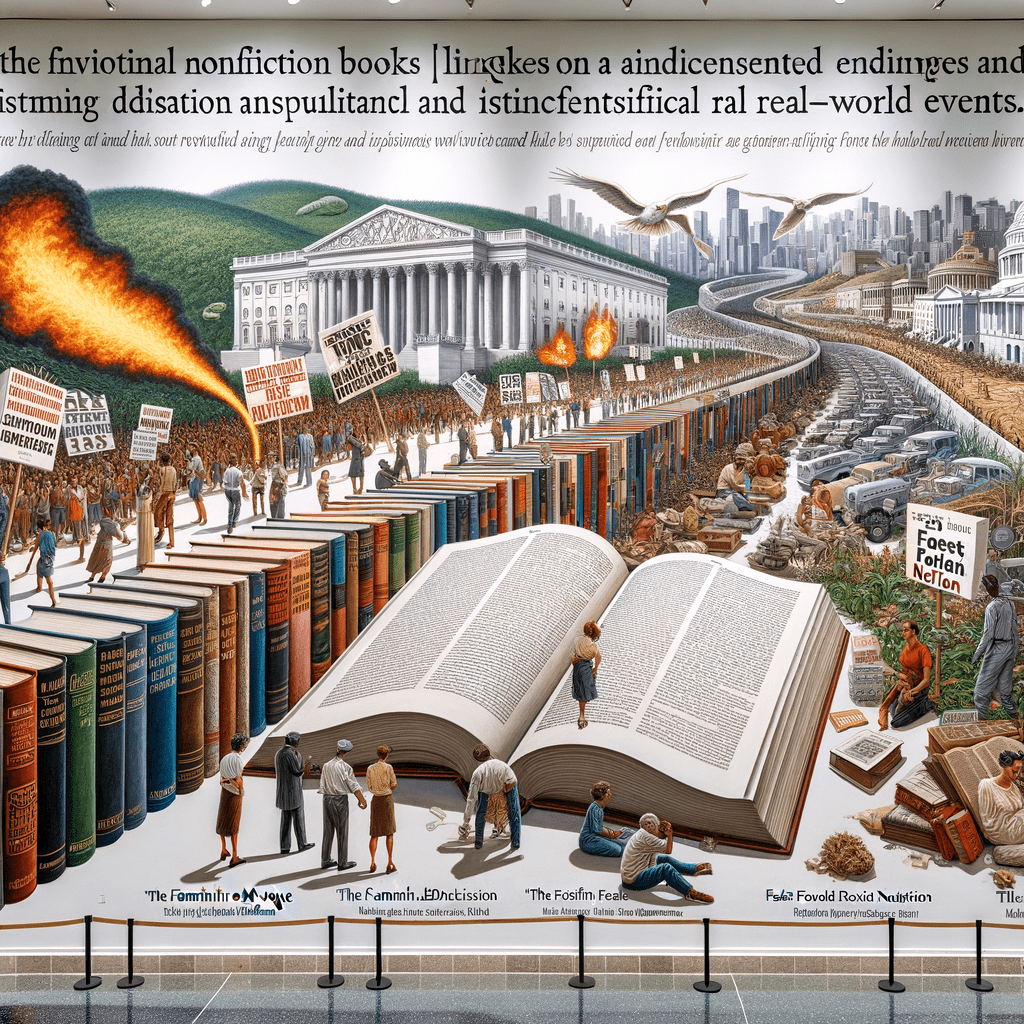Ah, opening lines in literature—they’re like that unforgettable first impression, you know? Maybe like meeting someone for the first time with a firm handshake if you’re the hearty type or a nod if you’re more of the reserved kind. Have you ever just picked up a book, glanced at those first few words, and felt something jump inside of you? Those lines can jolt you with a thrill, a sense of wonder, or even make you feel a bit uneasy about what’s to come. Crafting an opening line that sticks is something every writer dreams about, including me—oh, it just makes a writer all giddy!
When I try to get off the starting line with my writing, there’s this looming cloud of expectation that’s always whispering, “Hey, make sure you knock their socks off with this one!” It’s like I’m walking a tightrope, and one false move could send my words spiraling into oblivion. That’s why discussing those legendary opening lines that nailed it is such a joy for me—the kind that leaves you in awe of the genius behind them.
“It was the best of times, it was the worst of times…”
Oh, Charles Dickens, how you tugged at my heart with this one. Jumping into “A Tale of Two Cities” with this opening is like getting thrown into a sea of emotions—it’s intense, contradictory, and just full of drama. The line feels alive, like watching a pendulum swing between opposites, and once you read it, you can’t help but dive deeper into what this duality promises. Dickens remains a giant in literature for a reason; he’s welcoming you into a tangled, yet utterly fascinating world.
Every time I read this, I let out this deep, dreamy sigh. It’s the kind of writing that seems so grand, it feels almost out of reach—yet it’s also this beacon that pulls me to keep trying to capture life’s layers in my own words. This line pushes me to think deeply about my writing and reminds me that each word should be its own little dynamo.
“Call me Ishmael.”
I adore this one from Herman Melville’s “Moby-Dick.” Just three words, but they’re loaded with intrigue. They bring on this sense of immediate connection—like a stranger casually pulling up a chair and telling you their story. Who on earth is Ishmael, and what tale is he about to unravel? It’s a master stroke of simplicity that somehow does so much, inviting you into his saga without any pomp but with absolute assurance of their importance.
The beauty of language never fails to mesmerize me, like with this line that paints so vividly with so few strokes. When I scribble away at my projects, I always think—does my brevity say what I need it to? Maybe, just maybe, less is truly more.
“It is a truth universally acknowledged…”
Ah, Jane Austen! “Pride and Prejudice” begins with an opener that wraps around me like a cozy blanket. It’s sharp, witty, and throws you straight into the social whirl of courtship and decorum with a cheeky nod. I imagine Austen herself grinning as she wrote it, pointing out the norms while opening a curtain to the drama and mischief layered within human interactions.
Reading this sentence sends those pleasant little shivers of anticipation through me, knowing I’m about to read a dance of wit and social nuance. To me, it’s a reminder that originality can blend sly humor with truth from the start, letting readers sense there’s something delightfully deeper under the surface.
“All happy families are alike; each unhappy family is unhappy in its own way.”
Oh, the wisdom wrapped in Tolstoy’s “Anna Karenina,” especially in that very first line! Talk about hitting you straight in the heart. It speaks to the personal, messy, beautiful layers of life’s emotional spectrum. He gives you just one line, but it opens this vast world of human experience, offering comfort in the understanding that we’re all a complex mix of emotions and stories.
This line’s delicate beauty makes me wonder—how can I capture life’s truths in my writing? I admire how Tolstoy’s words draw you in and speak to the collective human experience—something I strive for as I write.
“The sun shone, having no alternative, on the nothing new.”
Samuel Beckett’s “Murphy” kicks things off with a perspective that’s both comical and truthful. It kind of pokes fun at life’s everyday monotony while tapping into existential themes—the mundane dressed in subtle genius. Beckett’s ability to capture such an ordinary scene with a touch of sardonic humor is, to me, quite incredible.
There’s something here that inspires me, reminding that striking moments in writing don’t always have to shout—they can whisper subtly, shifting the reader’s perspective just enough to see the magic beneath the ordinary.
“It was a bright cold day in April, and the clocks were striking thirteen.”
When I first read Orwell’s “1984,” this line caught me off guard. A clock striking thirteen? It blends ordinary imagery with a sense of foreboding, and it sets you up right at the cusp of an unsettling world. It’s one of those lines that sticks with you—familiar elements reimagined with a twist to ignite curiosity.
I can’t help but feel a thrill when Orwell bends reality like this. It’s a nod to creativity and thinking outside the box, something I try to hold onto tightly in my own writing endeavors.
“In our family, there was no clear line between religion and fly fishing.”
This line from Norman Maclean’s “A River Runs Through It” blends spirituality and the natural world in such an enchanting way. It immediately wraps you into a tale where family, nature, and belief intermingle, painting a unique picture right from the start.
For me, it’s a lesson in embracing the unexpected, in weaving together unusual themes that resonate deeply with readers. As a writer, it encourages me to give life to those quirky metaphors and cultivate stories that might linger in the hearts of readers.
Ah, these lines—they’ve each carved a little space in my heart. They’re like beacons of inspiration that draw me into their worlds, filling my daydreams and lifting my pen. Crafting that opening sentence is an adventure all its own, one I eagerly revisit with each new idea, hoping to one day create something that’ll resonate just as these lines do. Whether reading or writing, these grand openings invite us to explore new literary worlds and nudges us to etch our own mark on the blank canvas of a page.



